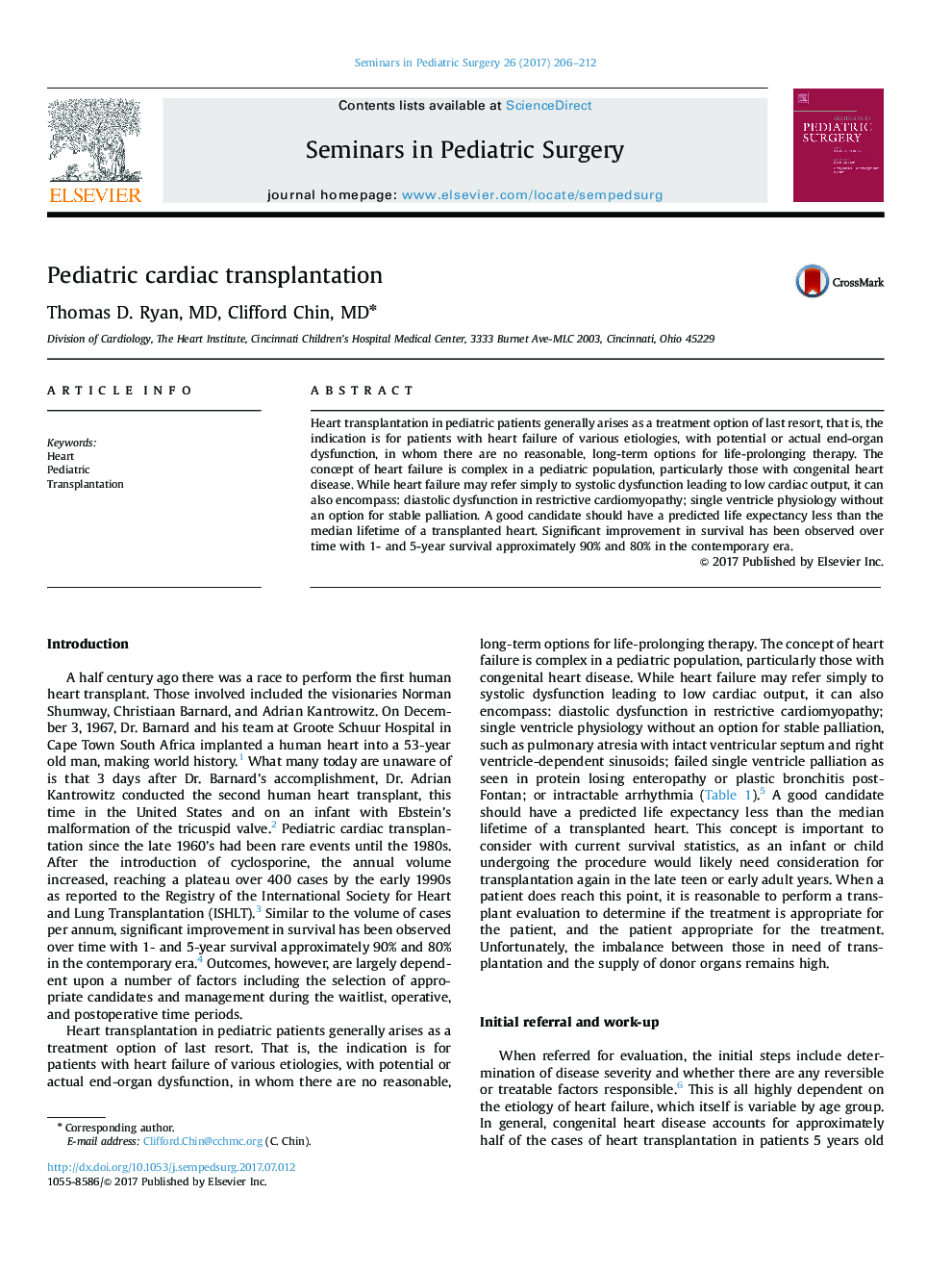| Article ID | Journal | Published Year | Pages | File Type |
|---|---|---|---|---|
| 5720282 | Seminars in Pediatric Surgery | 2017 | 7 Pages |
Heart transplantation in pediatric patients generally arises as a treatment option of last resort, that is, the indication is for patients with heart failure of various etiologies, with potential or actual end-organ dysfunction, in whom there are no reasonable, long-term options for life-prolonging therapy. The concept of heart failure is complex in a pediatric population, particularly those with congenital heart disease. While heart failure may refer simply to systolic dysfunction leading to low cardiac output, it can also encompass: diastolic dysfunction in restrictive cardiomyopathy; single ventricle physiology without an option for stable palliation. A good candidate should have a predicted life expectancy less than the median lifetime of a transplanted heart. Significant improvement in survival has been observed over time with 1- and 5-year survival approximately 90% and 80% in the contemporary era.
